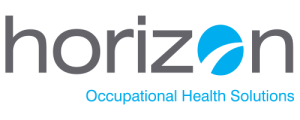
Q: What was your first job?
A: My first job in health was at the University of New Brunswick gym. I was responsible for checking the shoe tags that gym members had to wear to show they were a part of the gym – not exactly a thrilling role. However, because I had a lot of free time I started training the members and that’s what got me started in my fitness career. My first actual job was pumping gas at a full serve gas station in Fredericton. The job involved a lot of manual work, early mornings, late nights and cold weather – a lot like the oil and gas jobs we work with now but a lot less extreme. That being said, Fredericton winters can get pretty cold!
Q: Why did you decide to specialize in obesity, diabetes and exercise physiology?
A: My master’s degree was in exercise physiology looking at core strength that translates to likelihood of back injuries. To further my research, I moved to Newfoundland and from there my work and studies exposed me to the realities of obesity in heavy industry as an issue for both the individual worker and the employer. Following the Cougar Flight 491 helicopter crash that took the lives of 17 offshore workers an inquiry was conducted that showed how obesity status and fitness of workers contributed to the tragedy. Through my PhD research I then dug deeper into this question. The goal of my research is always to use an academic approach to solve real world problems, those related to worker health.
Q: What was it like to conduct research on remote sites?
A: Working in remote sites is an interesting challenge. I worked in isolated environments with logistical challenges of site access coupled with busy work schedules of employees (subjects) in a 24/7 365 workplace. As I mentioned, the research I conducted for my PhD was in response to a terrible helicopter tragedy that occurred on the east coast. When the site teams learned what was motivating me to conduct this work, I was able to finally break the ice and support for the project – improving fitness and weight reduction in offshore workers.
The additional training required to access the sites and understand the various jobs was a huge commitment. Overall, I can honestly say that nothing compares to the dynamic and exciting nature of working on oil rigs or mines and I won’t be shifting my focus or research from heavy industry anytime soon.
Q: What is it about Occupational Health that you find interesting?
A: To me, the most interesting aspect of occupational health is seeing how improving the health of the worker improves the health of the organization, not only physically speaking but financially and operationally. Declining health status of Canadians is posing significant challenges to employers and disrupting the quality of life of their workers. Helping organizations take a proactive role to mitigating worker health risks truly is a win win for everyone involved.
Q: What is the most important piece of advice you give most corporate customers?
A: I think that the phrase “health isn’t valued until it is lost” is a powerful statement. Unfortunately, health of Canadians is getting worse. With the declining state of health in Canada today I would advise clients to take a proactive role in improving and preserving the health of their workers.
Q: What keeps you inspired?
A: It is pretty easy to stay inspired when you get to help folks for a living! Spending over a year of my life on offshore oil rigs and months in remote industrial locations, you learn very quickly that these workers are making the sacrifice of being away from loved ones to provide for their families. You learn that although these workers are extremely skilled and highly trained they may not have the knowledge they need to improve their health. The opportunity to teach them how to get stronger for their job, get rid of aches and pains, and have more energy for their families and friends when they are home is extremely rewarding. Even if they don’t fully realize the benefits they are gaining in years of life and quality of life in those years – I do and that keeps the fire stoked and me inspired.
Q: What is your best piece of health advice?
A: I always tell people to wear their cleanest dirty shirt – In other words, do the best you can with what you have. I like to think of health as a glass of water – in that glass every drop of water is the same size, same significance as any other drop of water – but it only takes a single drop to make the whole glass start to overflow. This analogy extends to our lives in that we may have some poor health behaviors that are adding drops of water into our glass of health, but it takes very little for the glass to overflow. I always encourage people to identify their unhealthy behaviors and if they aren’t willing to give up those behaviors, then at least find some healthy habits to can add into their lifestyle. With this approach people can still do they things they like (which may not necessarily be healthy) but they are aware of it and make up for it with positive health behaviors in other areas. In my experience this is the most effective route as everyone gets to control their health the way they want. And I feel tremendously lucky to be one of the people who helps them do it!
To learn more about Mike Wahl, check out his profile on Tap Your Potential online. To view the profile, click here.
